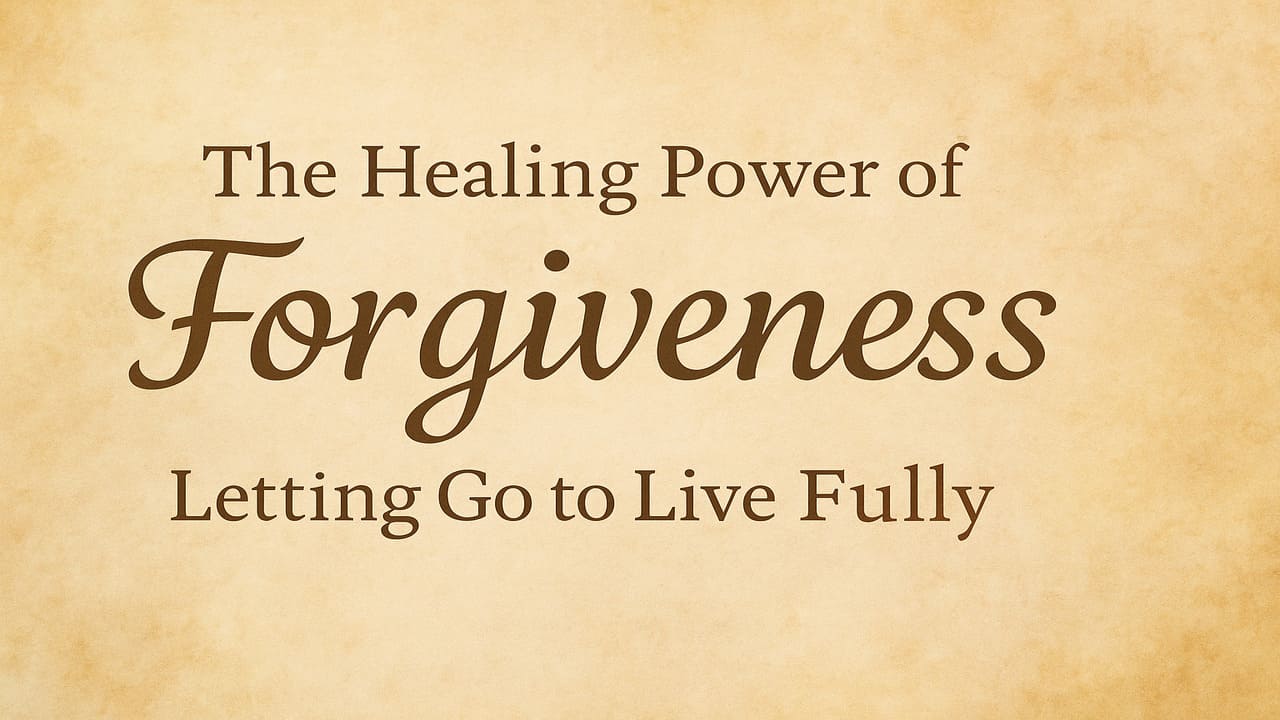
Thorn Ville Church – Forgiveness is one of the most profound and challenging commands in the Bible. While it is easy to talk about forgiveness in theory, living it out often feels impossible especially when we have been deeply hurt. Yet, God’s Word consistently calls us to forgive, not because the offense was small or because the pain wasn’t real, but because the power of forgiveness reflects the very heart of God.
Jesus Himself demonstrated this on the cross when He prayed, “Father, forgive them, for they know not what they do” (Luke 23:34, NIV). In that moment, forgiveness was not just a concept; it was a radical act of grace that offered freedom both to the offenders and to the One who forgave.
One verse that captures the essence of forgiveness is Ephesians 4:32 (NIV): “Be kind and compassionate to one another, forgiving each other, just as in Christ God forgave you.” This scripture not only tells us what to do be kind, compassionate, and forgiving but also why we should do it: because God has already forgiven us through Christ.
When we read this verse each morning, it becomes a daily reminder that forgiveness is not optional for followers of Jesus. It’s a calling rooted in the grace we’ve received. If we have been forgiven an unpayable debt, how can we withhold forgiveness from others?
Read More : Verses of Faith: Anchoring the Soul in a Restless World
Many people assume that forgiveness benefits the other person. While that is partly true, one of the greatest benefits of forgiveness is the freedom it brings to the one who forgives. Unforgiveness acts like a chain, keeping our hearts bound to the pain of the past. It can rob us of joy, peace, and spiritual growth.
When we choose to forgive, we release the burden of resentment. We are no longer defined by what was done to us, but by what Christ has done for us. The power of forgiveness opens the door to healing, both emotionally and spiritually. It’s not about pretending the hurt never happened it’s about refusing to let the hurt control the rest of our lives.
Even though forgiveness is a central theme in the Bible, it is often misunderstood. Let’s clarify a few misconceptions:
By clearing these misconceptions, we can approach forgiveness with a healthier and more biblical perspective.
Also Read : Sleep Habits That Quietly Harm Your Health Stop Them Tonight
While forgiveness can be hard, the Bible offers guidance for how to walk in it:
These steps may not erase the hurt instantly, but they open the path toward freedom.
Forgiveness is not only for big betrayals it’s for the small, daily offenses too. In marriage, friendships, workplaces, and church communities, we face countless opportunities to either hold onto grudges or let them go.
Choosing forgiveness in the little things trains our hearts for the bigger moments. It shapes our relationships into spaces of grace and understanding. Over time, it builds a culture where love, not bitterness, defines the atmosphere.
When we share our own stories of forgiveness, we inspire others to do the same. Your journey toward forgiving someone might be the testimony another person needs to begin their own. The beauty of God’s work is that He can turn our deepest wounds into a source of healing for others.
Forgiveness becomes a ripple effect when one person forgives, it often encourages others to lay down their burdens of resentment too. This is how communities change, families heal, and faith grows stronger.
Thornville Church - Your Source for Biblical Inspiration - numerous hidden christian heritage sites worth discovering remain off the beaten…
Thornville Church - Your Source for Biblical Inspiration - symbols and artifacts found in early church structures reveal much about…
Thornville Church - Your Source for Biblical Inspiration - The story of Daniel in the Lion’s Den remains a powerful…
Thornville Church - Your Source for Biblical Inspiration - Early christian sacred spaces have left a lasting cultural impact that…
Thornville Church - Your Source for Biblical Inspiration - haunted locations featured horror games have become central to the spine-chilling…
Thornville Church - Your Source for Biblical Inspiration - church symbols and icons hold profound significance in Christian worship, serving…